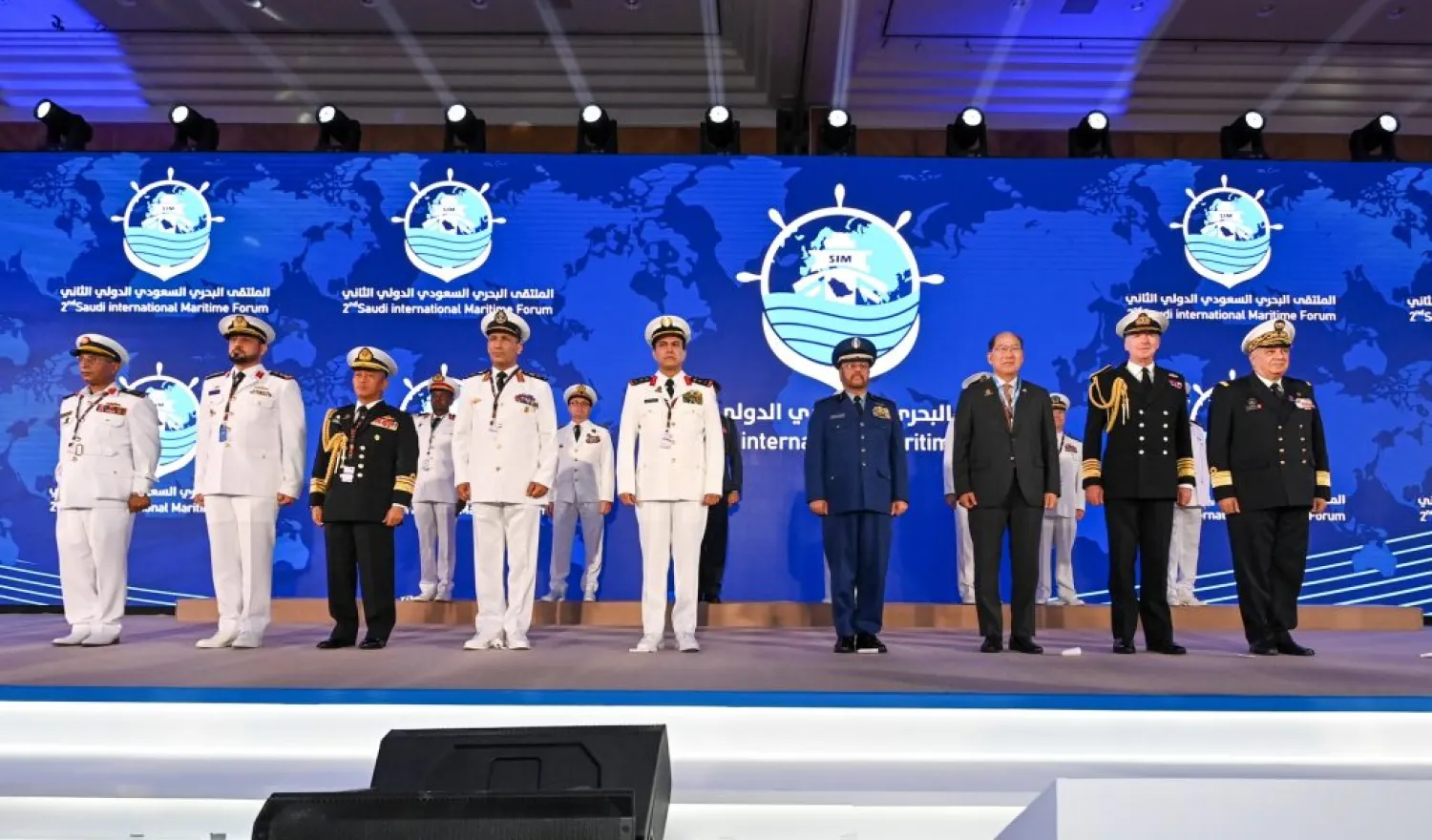Military leaders stressed the need for creating solid alliances to combat terrorism threatening maritime safety and security with low-cost materials that significantly impact international trade and marine environment.
They described the second edition of the Saudi International Maritime Forum, organized by the Royal Saudi Naval Forces, as crucial in terms of content and timing.
Discussions during the second day of the forum on Wednesday, focused on the importance of collaboration between military and civilian sectors to protect against the unmanned naval system, which researchers and academics view as an essential factor in controlling or eliminating terrorist groups.
They believe that using artificial intelligence and cybersecurity will help protect against unmanned systems, the cornerstone of war with the groups.
The Chief of Naval Staff in Pakistan, Lt-Gen Mohammad Amjad Niazi, asserted the importance of the forum, noting that the time is suitable for such a conference to exchange experiences and discuss future strategies.
Speaking to Asharq Al-Awsat, Niazi extended his thanks to the Commander of the Royal Saudi Naval Forces, Lt-Gen Fahd al-Ghafili, for holding this conference, which highlighted several important topics.
Niazi said that combating maritime terrorism is the responsibility of all countries, mainly that the seas have vast areas that no nation alone can control.
He asserted that all countries must unite in alliances and use their all capabilities possible to combat such crimes and control sea safety. He noted that terrorist groups exploit all available tools, including unmanned systems that enable them to target sites.
The Chief indicated that the world is witnessing modern technical wars through unmanned systems, which requires keeping pace with artificial intelligence and finding a high-level system capable of facing challenges and risks efficiently and effectively.
On the Saudi-Pakistani coordination, Niazi affirmed the strong cooperation between the Royal Saudi Naval and the Pakistani Forces, noting that the two countries regularly conduct many maneuvers, the latest of which was “Sea Breeze.”
Sea Breeze included drills on several scenarios that simulate types of wars, including combating terrorist organizations.
Advisor at the Saudi Authority for Data and Artificial Intelligence (SDAIA), Saif al-Saif, explained the impact of artificial intelligence on the development of unmanned systems and counter-systems.
Moreover, researcher at George Mason University in Washington, Zachary Kallenborn, reviewed countering maritime drones and their impact on vessels and vital sites.
Kallenborn noted that it was necessary to develop defensive anti-drone solutions.
The papers presented at the forum themed “Protecting Marine Units and Vital Coastal Sites against the Threat of Unmanned Systems” revealed concerns about the safety and security of maritime navigation and international corridors.
They also discussed addressing the concerns through technology and developing cybersecurity defenses.









